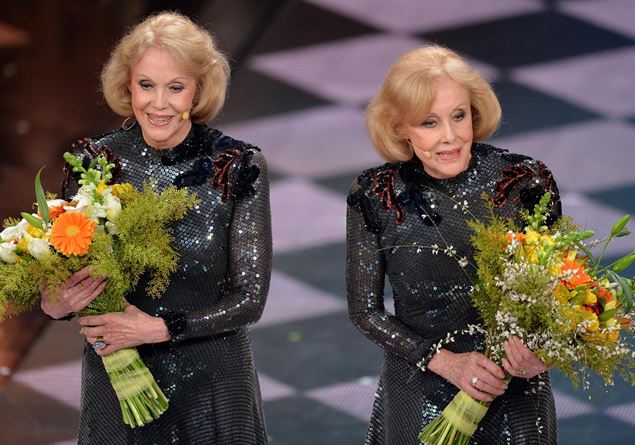They were the icon of light Italy. The death of the Kessler twins by assisted suicide caused confusion and pain. “The reaction was one of profound pity and dismay,” he comments Monsignor Vincenzo Pagliapresident of the Età Grande Foundation. «The fact that they were so well known, that they had entered the homes of so many, made me feel more pain and increase compassion for two people known by millions of people of at least two generations. Pain and sorrow for a death as it occurred, also because death is never a friend. It comes as a thief normally, but if you want it, it’s an even more serious problem. I could also say that I feel sorry for not having been there to understand and understand, to help live rather than die, to help understand the gift that each of us is even for those around us. And, I would say in this case, also for the many far away. We are all very sorry. Yes, we need others, them too.”
The special bond of twinship is also striking in the death of the Kesslers.
«I have two twin brothers. They are four years younger than me and I know a little about the implications which, at times, are complementary, other times divergent. It is a dimension of life that creates ways of relating details that are not always as inclusive as in this case. It is important to underline, however, that there is a dimension of life that lies beyond “blood” ties, which is the elective dimension of affection. An adoption fraternity that can be equally strong but does not cancel identities, if anything enhances diversity as a value that enriches the union. The emotional dimension must preside over the blood dimension. And in any case, I am convinced that blood ties must become a choice of love that does not cancel but merges.”
A choice of life and not death.
« Cain and Abel were blood brothers but the former did not choose it as a life bond, to the point of eliminating his brother. Fraternity, this blood bond, must become a life choice, a choice to grow in love. In short, the union between the twins must not cancel out their diversity – they are two different people – if anything it must help to enhance the unifying dimension which still preserves the diversity. It thus becomes an example of human coexistence. The unitive dimension of “nature” must be made fruitful so that it becomes a cultural, existential, even political choice. It’s about learning to coexist without canceling oneself out. Their unity-diversity was extraordinary. It would have been nice if it had continued.”
What is the danger?
«I wouldn’t want anyone to transform this choice – which is a very serious problem – into a sort of magisterium, of life teaching. I believe that we must all examine our consciences to see if we have been sufficiently close to them and not only that, but also to many others who are saddened by loneliness to the point of the temptation to “go away”, to take their own lives. I am convinced that every act of suicide is an unanswered request for love.”
This widespread tendency to decide on one’s own life and death is worrying.
«In my opinion it is a sadly Promethean dimension. We are not masters of our lives. It is a gift that was given to us so that we can spend it on everyone, so that we can make it profitable for everyone. No one is self-born. The navel reminds us that we are still connected to others. No one is disconnected from others. We receive life as a gift. Obviously the gift is ours. But it is not given to us because we throw it away.”
And then there is the issue of the law. The Kesslers were able to do what they did because they were in Germany.
«The German legislation seems frightening to me also because witnessing two people commit suicide would make me think of a lack of help. How is it possible to think of helping death do its dirty work? Let her do it. Obviously, I cannot even be the master of stopping it in its course. Wanting to block death at all costs is also foolish Prometheanism. The German disposition makes me shudder.”
Provision again occurred in a legislative vacuum. What do you hope for Italy?
«The legislative situation in our country makes me think that it is appropriate for the Italian Parliament at this point – after the Court’s intervention – to approve a law that is as widely shared as possible. In a field like this it would be foolish to make decisions by majority vote. I reiterate, however, that I (and many others, including non-believers) do not agree on assisted suicide and, even less, on euthanasia.”
And then, we don’t stop repeating it, palliative care must be implemented.
«Implementing them is of indelayable urgency. And it must be reiterated that palliative care is not for the “end of life”. Palliative care is an accompaniment in the time before death so that no one is left alone, no one is forced to endure cruel pain, no one is refused treatment even when they cannot recover. Unfortunately, today, in 70% of the country there are no adequate places for palliative care.”
There is a very effective campaign these days by Vidas which says: “Palliative care. Treatment, not a palliative”.
«It’s like this. Personally, I have been involved since 2016 with international conferences on the promotion of palliative care with the Pontifical Academy for Life. We must continue.”


